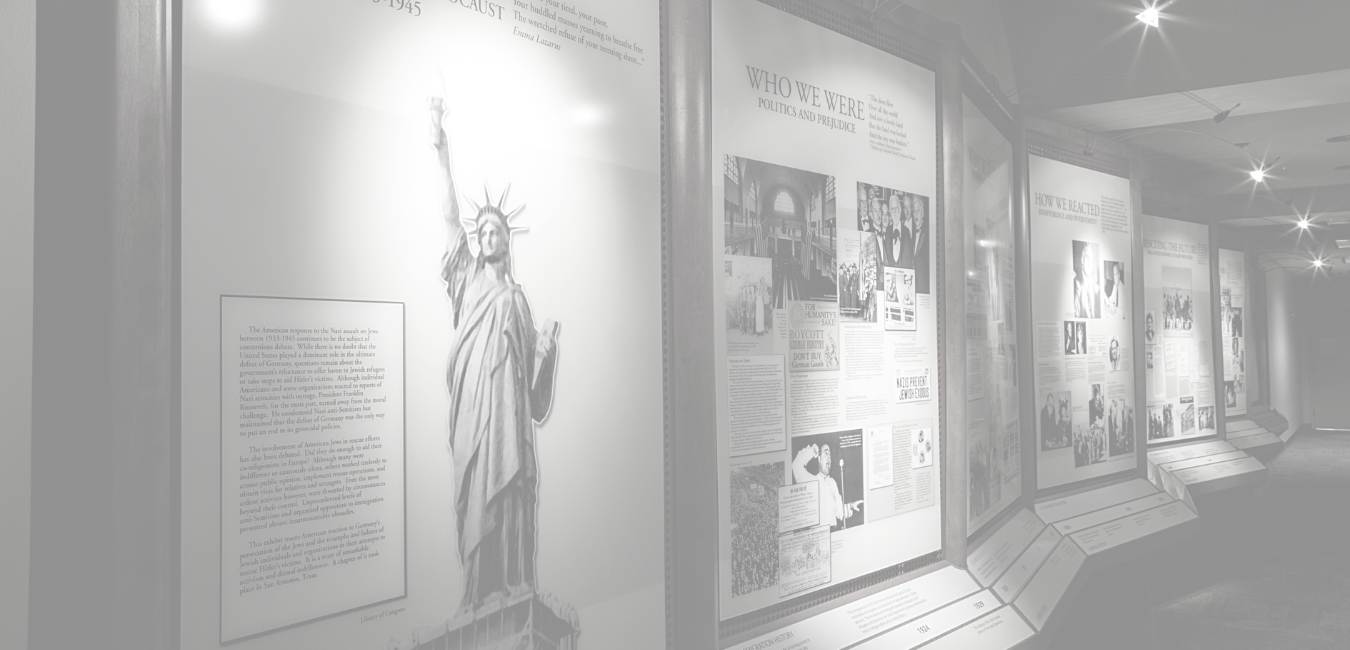
We are always excited to hear about potential donations to the museum's collections!
We use artifacts in our permanent exhibit displays and we also include artifacts in our temporary exhibits. Having artifacts to include in the exhibits help to make our displays more "real" to our visitors and add greater depth and context to the experience.
All offers to the museum’s permanent collections are evaluated by the museum’s Collections Committee to ensure the object fits into the scope of our collections, is something we can commit to caring for long-term, and is not already well represented in the collection.
Please do not send any items to the Museum without first speaking to our Curations Department in order to make proper arrangements.
Objects accepted into the collections from individuals, organizations or museums must meet at least one of the following criteria:
The object is representative of some aspect of Jewish life, typical of the period between 1918 to 1950.
The object was owned by a victim of the Holocaust, their families, or is representative of items owned by Holocaust victims.
If the object was owned by a victim of the Holocaust, it must be donated by, or purchased directly from, the victim or their heirs.
Objects suspected of being Nazi-confiscated will not be accepted as they may be subject to the Holocaust Expropriated Art Recovery (HEAR) Act. The museum must exercise reasonable diligence to ensure that all items have been collected or acquired in a legal and ethical manner.
The object is related to a Ghetto, Work Camp, or Killing Center used by the Nazis, or their allies, during the Holocaust for the imprisonment and/or murder of Jews or other groups of people deemed dangerous by the Nazis.
The object is related to anti-Nazi resistance groups or efforts to conceal and/or rescue Jews from the Nazis and their allies.
The object belonged to, or is representative of, WWII refugees, post-war Jewish immigration, or post-war efforts by Jewish people to return to their native countries.
The object belonged to, or is representative of, Holocaust victims’ post-war efforts to locate family members.

To help the committee to make its decision, we need to know as much as possible about the items on offer. For instance, it would be helpful to know where and when your family collected the items, who they acquired them from, and any personal family connections to the objects. Photos of the items are also helpful for the committee to get an idea what is on offer, and their condition and suitability for display.
The Committee may also use the following additional criteria for evaluating potential acquisitions.
Documentation as to origin, previous ownership, or use.
The Museum should have an anticipated use for objects acquired. This use could be in the form of exhibition, research, or education.
The Museum must be able to provide proper care for an acquired object. Because of its responsibility to maintain and preserve the object in perpetuity for the public, the Museum will accept and acquire only those items for which it can provide proper care, conservation, and storage. Any extraordinary financing for the object’s acquisition, care and storage must be arranged and approved prior to acceptance.
Items acquired by the Museum should have been collected or acquired in a legal and ethical manner. The Museum will not knowingly or willfully accept or acquire any item illegally imported into, or illegally collected in, the United States. Reasonable diligence will be employed to ensure that items considered for acquisition have been collected and imported in full compliance with the laws and regulations of the federal government of the United States and of the individual states. All items collected in foreign countries also must have been obtained in compliance with the laws of those countries.
Acquired items should not be encumbered with conditions imposed by the donor. Title to all items acquired for the collections should be obtained free and clear, without restrictions as to use, exhibition, loan, dispersal, or future disposition. Copyright, patent, or trademark status must be established if possible.
Only under exceptional circumstances will the Museum accept gifts on which the donor has placed restrictions concerning use or disposition.
Please be aware that objects accepted by the committee for the permanent collection, and donated to the HMMSA, are considered unconditional and irrevocable gifts. The museum will care for these items in accordance with our collections policy and following widely accepted museum standards of care for the long-term preservation and protection of these items. Permanent collection objects may be used for exhibitions, research, loan or examination but, HMMSA makes no guarantees concerning the frequency or duration of such exhibitions. Donations may be tax deductible. Please consult your tax adviser on any deductions and be aware that HMMSA is prohibited from providing appraisals of value.
